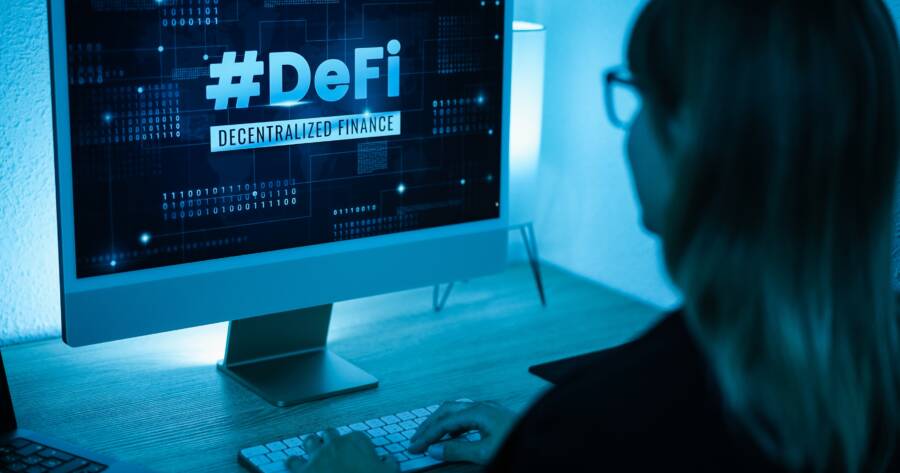Decentralized finance (DeFi) is an innovative and rapidly expanding sector of the financial industry, leveraging blockchain technology to deliver financial services directly, without relying on traditional intermediaries like banks. By removing these middlemen, DeFi aims to create a more inclusive and efficient financial system, offering services such as lending, borrowing, and trading to anyone with an internet connection. Its potential to democratize finance is driving its growth and reshaping the future of global markets.
What is DeFi?
DeFi stands for decentralized finance. Unlike traditional finance, DeFi does not rely on banks or intermediaries. Instead, it uses smart contracts on blockchain networks. These smart contracts are self-executing agreements with the terms directly written into code. By removing the need for a middleman and reducing costs, this approach works to create a transparent financial system that is open to everyone.
DeFi applications, or dApps, run on decentralized networks like Ethereum. They offer various financial services, such as lending, borrowing, and trading. Users can access these services using a digital wallet, without needing approval from a central authority. This makes DeFi open to everyone with an internet connection.
Benefits of DeFi
DeFi offers several key benefits. First, it provides greater financial inclusion. Anyone with internet access can participate, regardless of their location or financial status. This is particularly important for those in regions with limited banking services.
Second, DeFi increases transparency. All transactions are recorded on the blockchain, which is a public ledger. This means anyone can verify and audit transactions, reducing the risk of fraud. 1
Third, DeFi reduces costs. Without intermediaries, transaction fees are lower. 2 This makes financial services more affordable for users. Additionally, the automation provided by smart contracts speeds up transactions, making the process more efficient.
Challenges and Risks
Despite its advantages, DeFi also faces challenges and risks. One major concern is security. Since DeFi is built on blockchain technology, it is susceptible to hacking. Smart contracts can have vulnerabilities that hackers might exploit. It is crucial for developers to ensure their code is secure and regularly audited.
Another challenge is regulation. Since DeFi operates in a largely unregulated space, which deals with all types of cryptocurrencies, there are a lot of potential benefits and risks. So, look out for scammers and fraudsters. In this digital Wild West, governments are working hard to implement some regulations — but only enough to protect customers without stunting their potential gains.
Finally, the complexity of DeFi platforms can be a barrier for new users. While DeFi aims to be accessible, understanding how to use these platforms can be daunting. User education and improved interface designs are needed to make DeFi more user-friendly.
The Future of DeFi
The future of DeFi looks promising. As technology advances, we can expect more innovative financial products and services. DeFi could revolutionize areas like insurance, real estate, and even governance.
To thrive, DeFi needs to address its current challenges. Enhanced security measures, better regulatory frameworks, and improved user interfaces will be key. As more people become aware of DeFi and its benefits, its adoption will likely continue to grow.
Are You Ready For DeFi?
The financial landscape is set to be redefined by DeFi. After all, its services emphasize accessibility, affordability, and transparency — features that any investor will cherish. While there are challenges to overcome, the potential of DeFi is immense.
By staying informed and cautious, users can navigate this new financial frontier with confidence. DeFi represents a significant shift towards a more inclusive and decentralized financial system.
